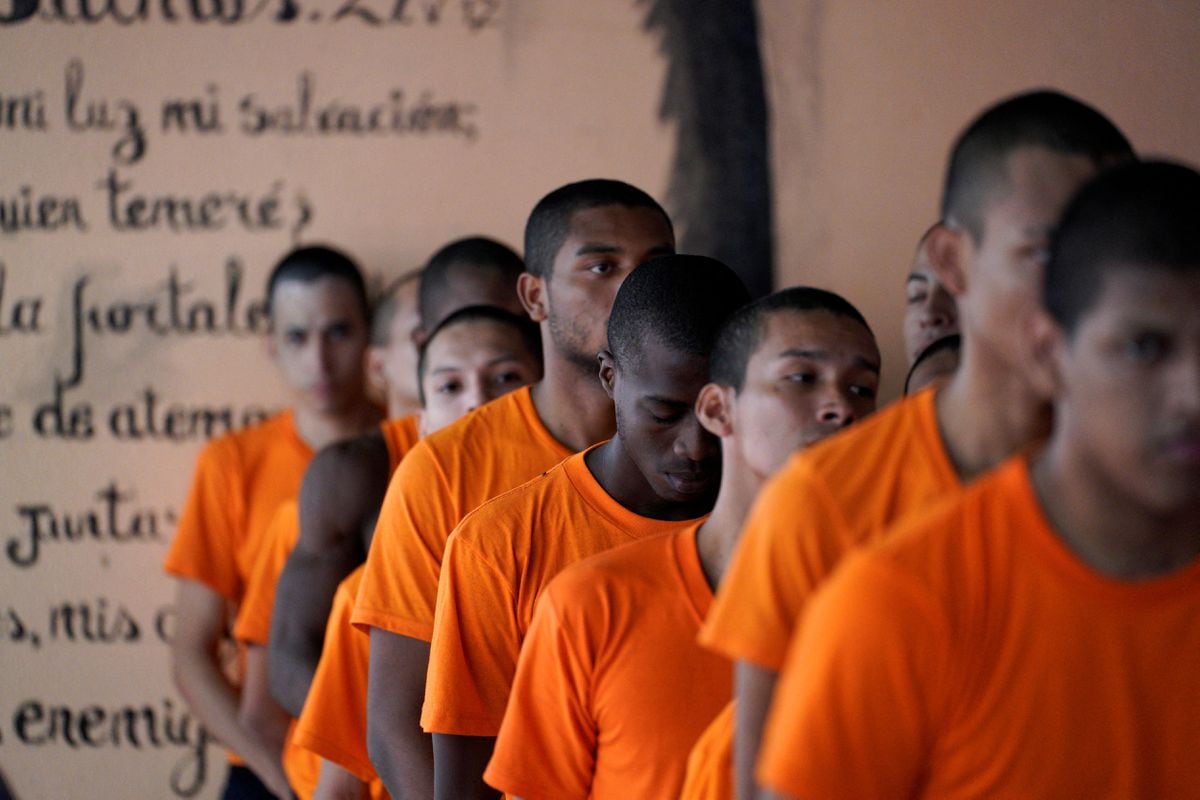The Government of Ecuador has temporarily suspended the taking of genetic samples from prisoners after criticism of the procedure that arose following the EL PAÍS exclusive, which documented that the oral swab was being carried out under pressure from the military who control prisons and without properly informing the inmates.
The instruction is to convince them not to consult with their lawyer and hide from them the right by law to refuse to have samples taken.
Through a statement on social networks, the SNAI, the Government entity responsible for prisons, confirmed that on February 21 it began a prison census, where genetic profiles are also taken from prisoners to create a data bank with forensic and humanitarian purposes, “as long as there is the informed consent of the people deprived of their liberty,” the document says.
The same document was shared in the chats of public Government workers who were forced to publish the official statement on all social networks and spread it among their families.
The prison census carried out by the SNAI began in the Riobamba and Cotopaxi prisons, one of the most dangerous in the country, where there are more than 4,300 inmates, where the instruction has been “not to read the terms of consent to the PPL, they neither they understand them,” according to three different sources.
The registration process continued this Monday the 18th at the Litoral Penitentiary, which has been the scene of riots and massacres and where 250 people have been cruelly murdered.
The prisoners of the Penitentiary are accommodated in the pavilions according to the criminal organization.
This prison center is not completely under the control of the Armed Forces, to which the security of the prisons was handed over in the state of emergency decree of January 8.
In this prison alone there are nearly six thousand inmates spread across 12 pavilions.
However, the inmates of the Penitentiary are no longer receiving genetic tests because they were suspended and it has not been explained when they will be resumed.
EL PAÍS requested information on the subject from the SNAI, the Ministry of Government and the Communication Secretariat of the Presidency of the Government, but they have not responded to the request.
Although the DNA samples that are being extracted from inmates can be used to create a database that facilitates recognition in the case of massacres, to control identity theft, they can also be used to involve them in crimes that are going to commit in the future or have already committed in the past.
For example, an inmate convicted of murder who borrows his genetic material might find that those samples match those collected in a rape case.
In Ecuador, the data protection law protects citizens to have the right to know about the existence and access genetic data held in public or private entities.
And the use made of them must be specified, their purpose, origin and destination, as well as the duration of validity of that database and the authorization each time it is used.
The Human Rights Committee of Guayaquil has said that it will request information about this practice from the Government to request an audit of the process and verify whether it complied with providing the information and signing the document that supports the consent of the person deprived of liberty to deliver the genetic sample. .
Follow all the information from El PAÍS América on
and
X
, or in our
weekly newsletter
.

